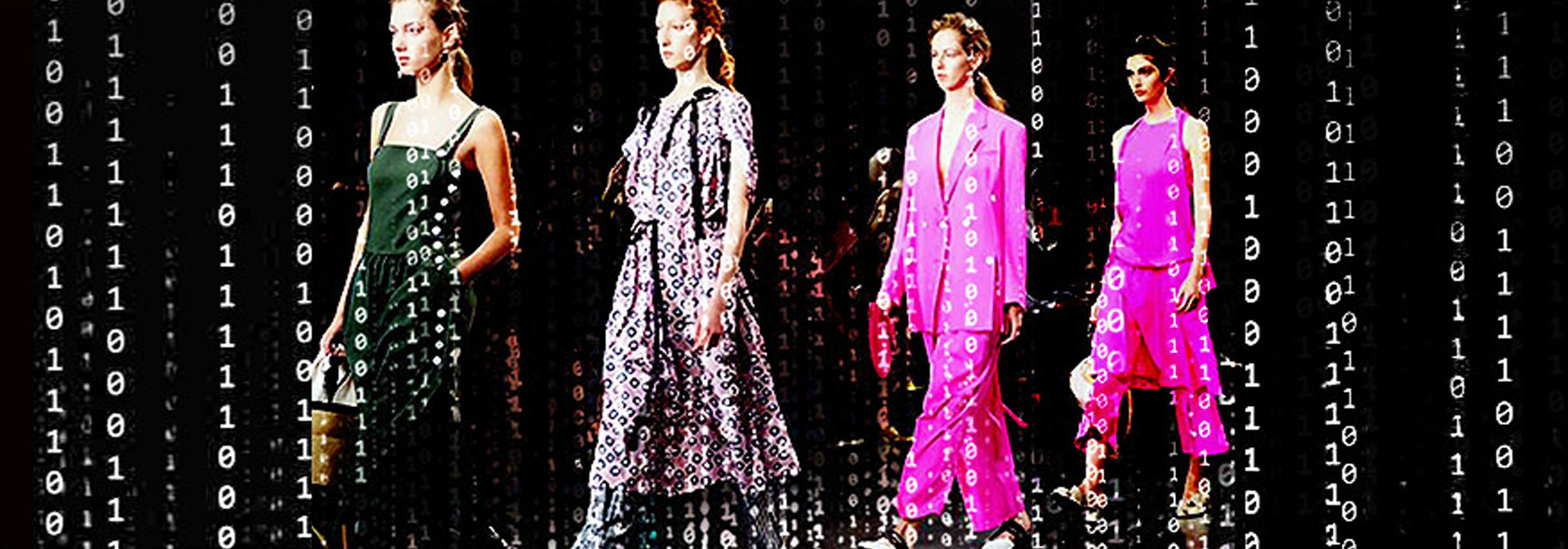The course will run for an eight week period starting on the 10 February and running for five weeks until the Easter break and will restart on the 20 April and run for a further three weeks before concluding (see schedule below). All sessions will take place on Monday morning from 10am to 1pm at the Digital Learning Lab (room JPS 323) at John Princes Street.
In this course, you will review artificial intelligence literature, and apply it to fashion. You will learn state-of-the-art AI techniques and as part of your homework use these to create real items of clothing. At the end of this course, you will bring all of these methods together to create unique collections!
The Syllabus will cover:
- Week One: 10 February - A review of essentials (Python programming, command line tools, Jupyter notebooks)
- Homework: writing a Python script to collect fashion data
- Week Two: 17 February - An introduction to artificial intelligence and classification
- Homework: Training a model to classify items of clothing
- Week Three: 24 February - Predicting and forecasting fashion trends
- Homework: Training a model to predict fashion trends from social media
- Week Four: 2 March - Recommendation systems and personalisation
- Homework: Recommending fashion items based on personalised preference
- Week Five: 9 March - Visualisation and Style Transfer
- Homework: Using style transfer to create unique designs
- Week Six: 20 April - Generative AI model
- Homework: Training a Generative Adversarial Network to create designs.
- Week Seven: 27 April - Image to Image Translation and Image Inpainting
- Homework: Training a Pix2Pix model to create hybrid collections
- Week Eight: 4 May - Project presentations
Students can book their place here
Biography of the course leader:
Pinar Yaradag has a post-doc at MIT Media Lab, a Ph.D. from Purdue CS under Fulbright Ph.D. fellowship, and was granted a Google Anita Borg scholarship.
Pinar is originally from Istanbul where she worked for TUBITAK UEKAE (The Turkish Research Institute of Electronics and Cryptology) as a Security Team Leader and floss developer under Pardus GNU/Linux project and as a mentor for Google Summer of Code. She also hold a MSc in Computer Engineering from Bogazici University.
Please note:
Places on this course are limited (its on a first come, first serve basis) however there will be a waiting list for students, to fill places of any drop-outs. Students who register on the waitlist must please check notifications up to 9am on 10 February in the event of any very last minute drop outs.
Please be courteous to fellow students and only sign up if you can commit to the full eight session duration of the course. Please note that the Eventbrite registration for this course only shows as the 10 February, but you are expected to attend all consecutive sessions (as per schedule). Please inform us by updating your Eventbrite status and email Tracy Bergstrom, t.bergstrom@arts.ac.uk if you have signed up and are not able to make it so that another student will have the opportunity to take your place.

